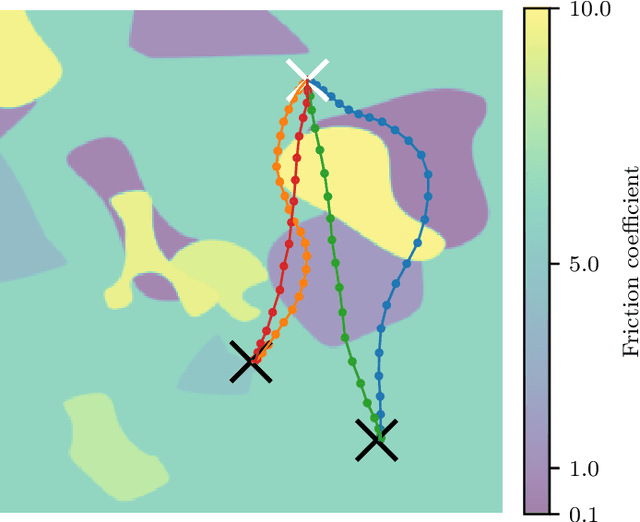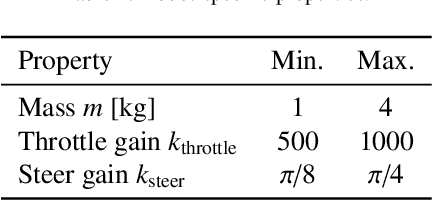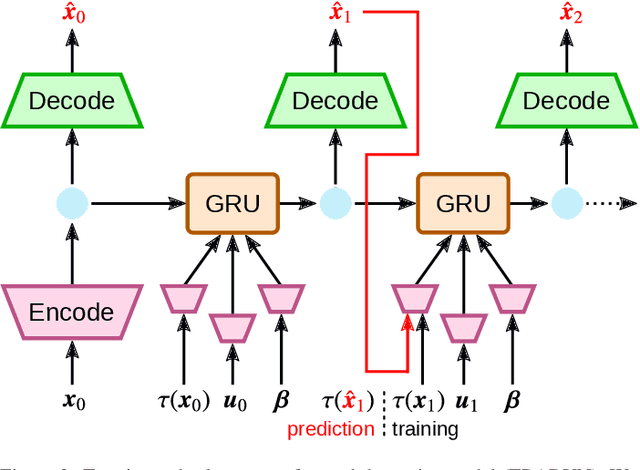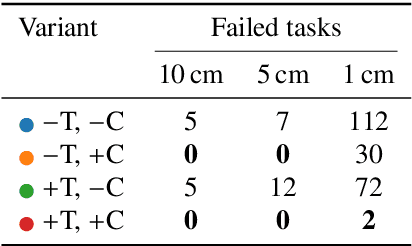Learning a Terrain- and Robot-Aware Dynamics Model for Autonomous Mobile Robot Navigation
Paper and Code
Sep 17, 2024



Mobile robots should be capable of planning cost-efficient paths for autonomous navigation. Typically, the terrain and robot properties are subject to variations. For instance, properties of the terrain such as friction may vary across different locations. Also, properties of the robot may change such as payloads or wear and tear, e.g., causing changing actuator gains or joint friction. Autonomous navigation approaches should thus be able to adapt to such variations. In this article, we propose a novel approach for learning a probabilistic, terrain- and robot-aware forward dynamics model (TRADYN) which can adapt to such variations and demonstrate its use for navigation. Our learning approach extends recent advances in meta-learning forward dynamics models based on Neural Processes for mobile robot navigation. We evaluate our method in simulation for 2D navigation of a robot with uni-cycle dynamics with varying properties on terrain with spatially varying friction coefficients. In our experiments, we demonstrate that TRADYN has lower prediction error over long time horizons than model ablations which do not adapt to robot or terrain variations. We also evaluate our model for navigation planning in a model-predictive control framework and under various sources of noise. We demonstrate that our approach yields improved performance in planning control-efficient paths by taking robot and terrain properties into account.
 Add to Chrome
Add to Chrome Add to Firefox
Add to Firefox Add to Edge
Add to Edge